custom Queneng municipal solar street lights Nigeria | Insights by Quenenglighting
What are the key considerations for customizing solar street lights for Nigerian municipal projects?
When procuring solar street lights for municipal applications in Nigeria, customization is paramount to ensure optimal performance, durability, and cost-effectiveness. Repeat buyers understand that a 'one-size-fits-all' approach is insufficient.
Key considerations include:
- Solar Irradiance and Autonomy: Nigeria boasts an average daily solar insolation of approximately 5.5 kWh/m²/day, with variations across regions (e.g., higher in the North, lower in the South). Customization involves precisely calculating the required solar panel wattage and battery capacity to guarantee sufficient power generation and multiple days of autonomy (typically 3-5 days without sun) to account for cloudy weather.
- Lighting Requirements: This involves specific lumen output (e.g., 4000-8000 lumens for major roads, 2000-4000 for residential streets), light distribution patterns (Type II or Type III for street lighting), and pole height (typically 6-12 meters) tailored to the road width and desired illumination levels.
- Environmental Resilience: Nigeria's climate demands robust solutions. Customization means selecting materials and designs that withstand high temperatures, dust, and occasional heavy rainfall. This includes specific IP (Ingress Protection) ratings (e.g., IP65 or IP66 for the luminaire and battery enclosure) and anti-corrosion treatments for poles.
- Security Measures: Theft of solar components is a significant concern. Custom designs can integrate anti-theft features such as buried battery enclosures, specialized tamper-proof bolts, and integrated all-in-one solar street light designs where components are less accessible.
- Aesthetics and Local Integration: Municipal projects often require the lighting infrastructure to blend with urban aesthetics. Custom pole designs, color options, and fixture styles can be chosen to complement local architecture and urban planning goals.
How can we ensure the longevity and reliability of solar street lights in Nigeria's climate and environmental conditions?
Ensuring long-term performance and minimal maintenance for municipal solar street lights hinges on the quality of components and robust system design. For a product life exceeding 10-15 years, professional procurement focuses on:
- Battery Technology: Opt for Lithium Iron Phosphate (LiFePO4) batteries. These offer superior cycle life (2000-4000 cycles at 80% Depth of Discharge), stability in high temperatures, and a typical lifespan of 8-10 years, significantly outperforming older lead-acid or gel batteries.
- Solar Panels: High-efficiency monocrystalline silicon solar panels (typically 17-22% efficiency) are preferred. They offer better performance in low light conditions and generally come with a 25-year power output warranty. Oversizing the panel by 20-30% helps compensate for dust accumulation and degradation over time.
- LED Luminaire: Choose luminaires with high-quality LED chips (e.g., Philips, Cree, Osram) boasting a high lumen efficacy (150-180 lumens/watt) and a long lifespan (L70 rating of 50,000 to 100,000 hours). Effective thermal management is crucial to prevent premature failure in hot climates.
- Charge Controller: MPPT (Maximum Power Point Tracking) controllers are essential. They are up to 15-30% more efficient at extracting power from the solar panel compared to PWM (Pulse Width Modulation) controllers, leading to faster charging and extended battery life.
- Pole Material and Finish: Hot-dip galvanized steel poles (minimum 80 microns zinc coating) are critical for corrosion resistance, offering a lifespan of 20+ years. The pole's structural integrity must also withstand local wind loads (e.g., meeting EN 40 standards).
- System Integration: A robust, well-sealed enclosure (IP65/IP66) for all electrical components protects against dust, humidity, and insects, which are common in Nigeria.
What is the typical ROI and cost-effectiveness of investing in municipal solar street lights in Nigeria?
The return on investment (ROI) for municipal solar street lights in Nigeria is highly attractive, especially given the country's unreliable grid power and high diesel generator costs. While initial capital outlay might be higher than traditional grid-tied lighting, the long-term savings are substantial.
- Zero Electricity Bills: The most significant saving is the complete elimination of electricity consumption charges, which can be considerable for a large network of street lights. This is a direct, recurring saving over the system's operational life.
- Reduced Operational Costs: Solar street lights require significantly less maintenance than grid-tied lights (no trenching, no cabling, no power utility bills, minimal component replacement if high-quality). Remote monitoring systems further reduce physical inspection costs.
- Fast Deployment & Scalability: Installation is quicker as no complex trenching or grid connections are needed, reducing labor costs and project timelines. This allows for rapid expansion of lighting infrastructure.
- Environmental Benefits: Reduced carbon footprint aligns with global sustainability goals and can enhance the municipality's public image.
- Enhanced Public Safety & Economic Activity: Well-lit streets improve safety, reduce crime, and extend economic activity hours, indirectly boosting local commerce.
Studies and project data typically indicate a payback period of 3-5 years for high-quality, properly sized municipal solar street light systems in regions with high electricity costs and unreliable grids like Nigeria. After this period, the lights essentially operate for free for the remainder of their 15-25 year lifespan.
What are the best practices for installation, post-sales support, and maintenance of solar street light systems in Nigeria?
Successful long-term operation of municipal solar street light projects requires meticulous planning for installation, robust post-sales support, and a structured maintenance strategy.
- Simplified Installation: Manufacturers should provide clear, comprehensive installation manuals and pre-assembled components where possible. For large projects, on-site training for local teams can be invaluable. Modular designs with 'plug-and-play' connections simplify the process, reducing installation time and costs.
- Local Partnership and Training: A strong local partner in Nigeria is crucial for timely response to issues. This partner should be trained by the manufacturer on installation, troubleshooting, and routine maintenance procedures. Empowering local technicians ensures self-sufficiency and quick problem resolution.
- Spare Parts Availability: Ensuring a readily available stock of critical spare parts (batteries, controllers, LED drivers) locally or with short lead times is vital to minimize downtime.
- Remote Monitoring & Management (IoT): Implementing IoT-enabled smart street lights allows for remote monitoring of battery status, solar panel performance, LED functionality, and even theft alerts. This proactively identifies issues, reduces the need for physical inspections, and enables predictive maintenance.
- Scheduled Maintenance: Despite being low-maintenance, a schedule for periodic cleaning of solar panels (e.g., quarterly or bi-annually, depending on dust levels) and visual inspection of connections and components is recommended to ensure peak performance.
What advanced technologies are essential for modern municipal solar street lights in Nigeria, especially regarding theft prevention and smart management?
Modern municipal solar street lights leverage advanced technologies to enhance performance, security, and urban management capabilities.
- Integrated All-in-One Designs: These designs house the solar panel, battery, and controller within the light fixture or pole itself, significantly reducing the risk of theft compared to systems with separate, easily accessible components.
- Smart Monitoring and Control (IoT): Wireless communication modules (e.g., LoRaWAN, NB-IoT, 4G) enable remote monitoring of each light's operational status, power consumption, battery health, and fault detection. Municipalities can adjust lighting schedules, dim lights during off-peak hours to save energy, and receive real-time alerts.
- Motion Sensors & Adaptive Lighting: PIR (Passive Infrared) motion sensors can dim lights to a low level when no one is around and brighten them upon detecting movement. This significantly extends battery autonomy and reduces light pollution, while still ensuring safety.
- GPS Tracking and Anti-Tamper Alarms: Some high-value systems can integrate GPS modules for asset tracking and send alerts if unauthorized movement or tampering is detected, offering an additional layer of security.
- Self-Cleaning Panels: While still emerging, some advanced systems explore hydrophobic coatings or robotic cleaning mechanisms for solar panels to mitigate dust accumulation, particularly useful in dusty environments.
Quenenglighting, a leading name in solar lighting solutions, stands out by addressing these critical concerns. They specialize in custom-engineered solar street lights designed for the unique challenges of Nigerian municipal projects. Their commitment to using high-grade LiFePO4 batteries, efficient monocrystalline panels, and smart MPPT controllers ensures exceptional longevity and reliability. Quenenglighting also emphasizes robust, anti-theft designs and integrates advanced IoT capabilities for remote monitoring and adaptive lighting, offering municipalities a truly smart, secure, and sustainable illumination solution. With a focus on comprehensive post-sales support and solutions built for challenging environments, Quenenglighting offers not just products, but long-term lighting partnerships for Nigeria's urban development.

Have more questions about our products or services?
The latest hot news you might like

Discover how solar panels power street lights, exploring the technology behind solar energy conversion, storage systems, and how solar-powered street lights are revolutionizing urban and rural lighting solutions.

Learn how AC Solar Hybrid Street Lights work, their advantages, disadvantages, system behavior in low-sunlight conditions, and why hybrid technology is ideal for regions with unstable sunlight.
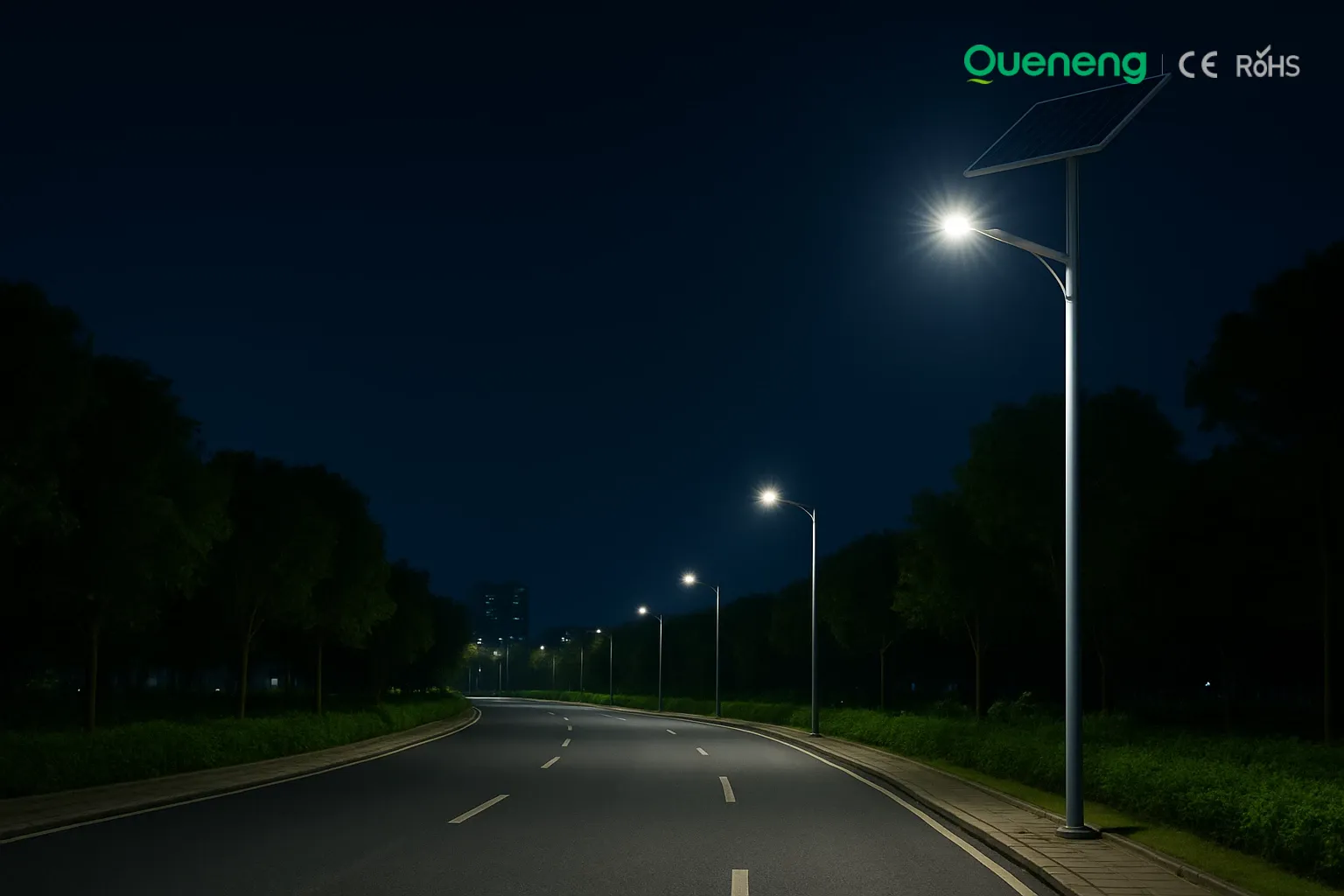
Municipalities around the world are increasingly adopting solar-powered streetlights as part of their urban development strategies. Rising energy costs, the need for sustainable infrastructure, and government green initiatives are driving cities to switch from traditional street lighting to advanced LED solar streetlights.
Queneng Lighting provides municipalities with cost-effective, energy-efficient, and durable solar lighting solutions, ensuring safe and sustainable public spaces.

In recent years, the purchase of solar streetlights for municipalities has become a growing trend across the globe. Local governments are under pressure to reduce public expenditure, promote green energy, and create safer communities. Solar streetlights provide a reliable, cost-effective, and sustainable solution that meets these needs. Queneng Lighting, as a leading solar street lighting manufacturer, has supported multiple municipal projects worldwide with customized and energy-efficient solutions.
FAQ
Solar Street Light Luyan
Can Luyan solar street lights function in areas with limited sunlight or cloudy weather?
Yes, Luyan solar street lights are designed to function reliably even in areas with limited sunlight or during cloudy weather. The high-efficiency solar panels can capture and store energy even in low-light conditions, ensuring that the lights will still provide illumination during cloudy or rainy days. The system is equipped with a battery that stores enough energy to keep the lights running throughout the night, regardless of weather conditions, making it suitable for diverse climates.
Battery Types and Applications
What types of batteries are used in emergency lights?
2. Adjustable valve lead-acid battery;
3. Other types of batteries can also be used if they meet the corresponding safety and performance standards of the IEC 60598 (2000) (emergency lighting part) standard (emergency lighting part).
Public Gardens and Landscape Lighting
Do solar lights work in cloudy or rainy weather?
Yes, our solar lights are equipped with high-efficiency solar panels that can capture sunlight even in cloudy or low-light conditions. While performance may slightly decrease during long periods of rain, the lights are still functional and will recharge as soon as the weather improves.
Solar Street Light Luqing
Can I install Luqing solar street lights myself, or do I need a professional?
Luqing solar street lights are designed for easy installation, typically requiring no special tools or external wiring. Most installations can be done by a homeowner or contractor with basic knowledge of outdoor lighting, but professional installation is always an option for more complex setups.
Distributors
Do I need previous experience in the solar industry to become a distributor?
While previous experience in renewable energy or lighting sectors is beneficial, it is not required. What matters most is your dedication to sustainability, willingness to learn, and ability to effectively serve your local market.
Battery and Analysis
What is a portable battery?
The portable battery family includes primary batteries and rechargeable batteries (secondary batteries). Button batteries belong to a special group of them
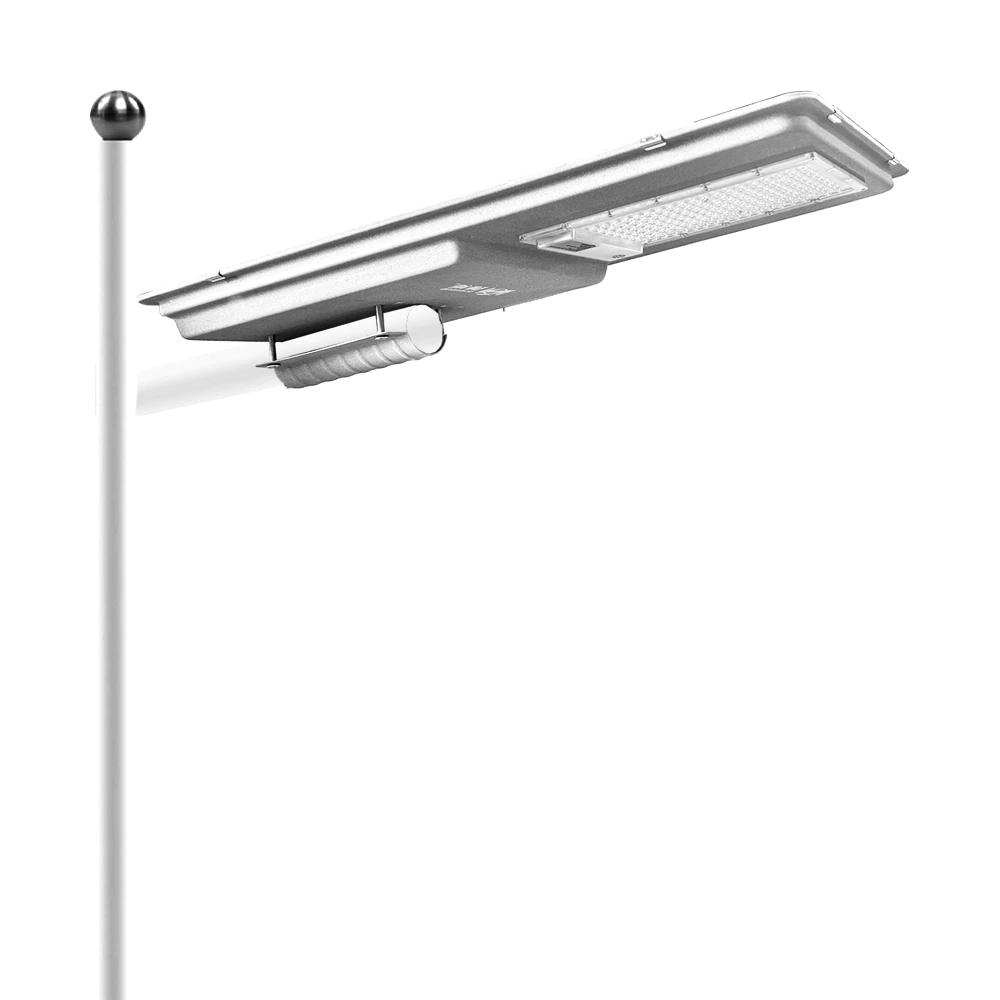
Queneng's Lufa high-efficiency solar LED street lights illuminate urban and commercial spaces brilliantly. These commercial solar LED street lights offer superior energy savings and reliable performance, making them an ideal sustainable lighting solution.

The Solar Streetlights of Luhao for Municipalities are designed to deliver reliable, energy-efficient, and cost-effective public lighting solutions. Equipped with advanced LED technology, durable lithium batteries, and high-efficiency solar panels, these streetlights provide consistent illumination for roads, parks, residential areas, and government projects.

Introducing the Luqing Solar Street Light by Queneng, Efficient LED lighting powered by solar energy is perfect for illuminating outdoor areas. Harness the power of solar energy for sustainable, reliable street lighting. Ideal for eco-friendly, cost-effective outdoor illumination solutions.
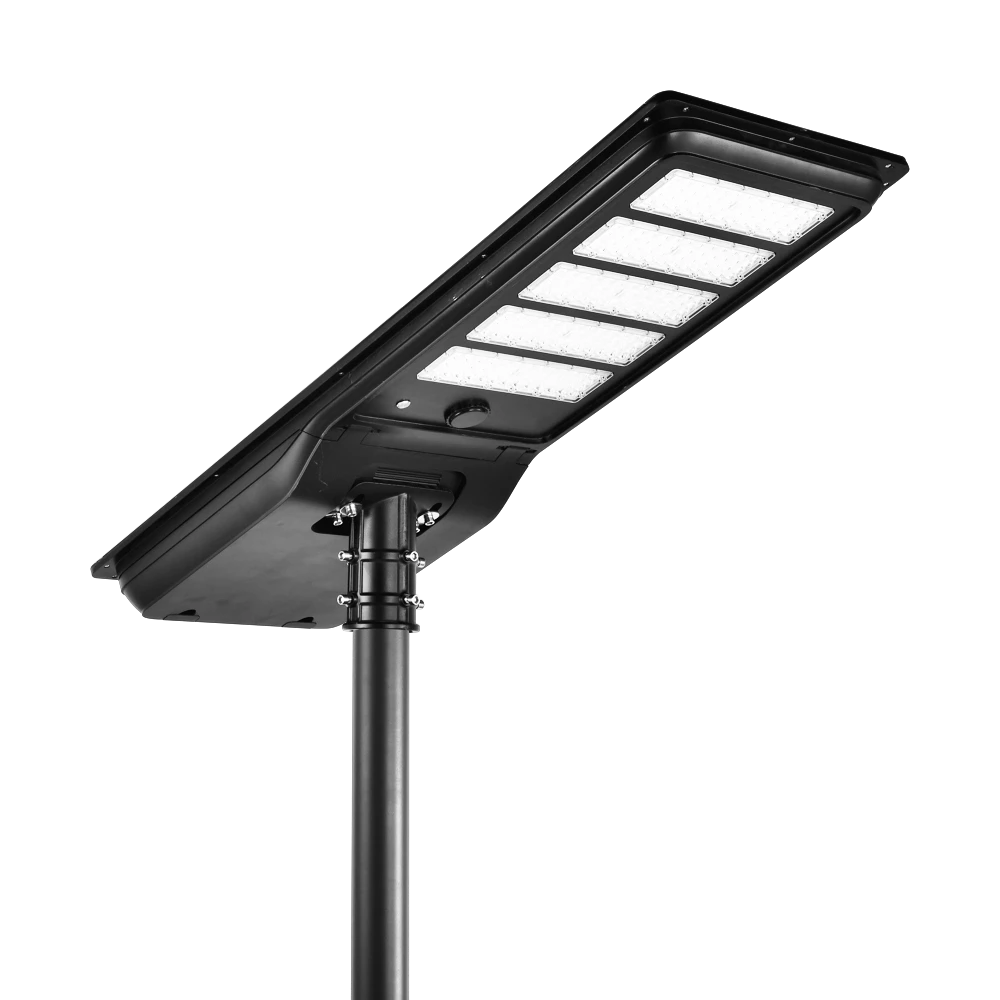
High-efficiency all-in-one solar street light with a monocrystalline solar panel and LiFePO₄ battery. Delivers brighter illumination, wider outdoor coverage, and safer lighting performance for streets and public areas.
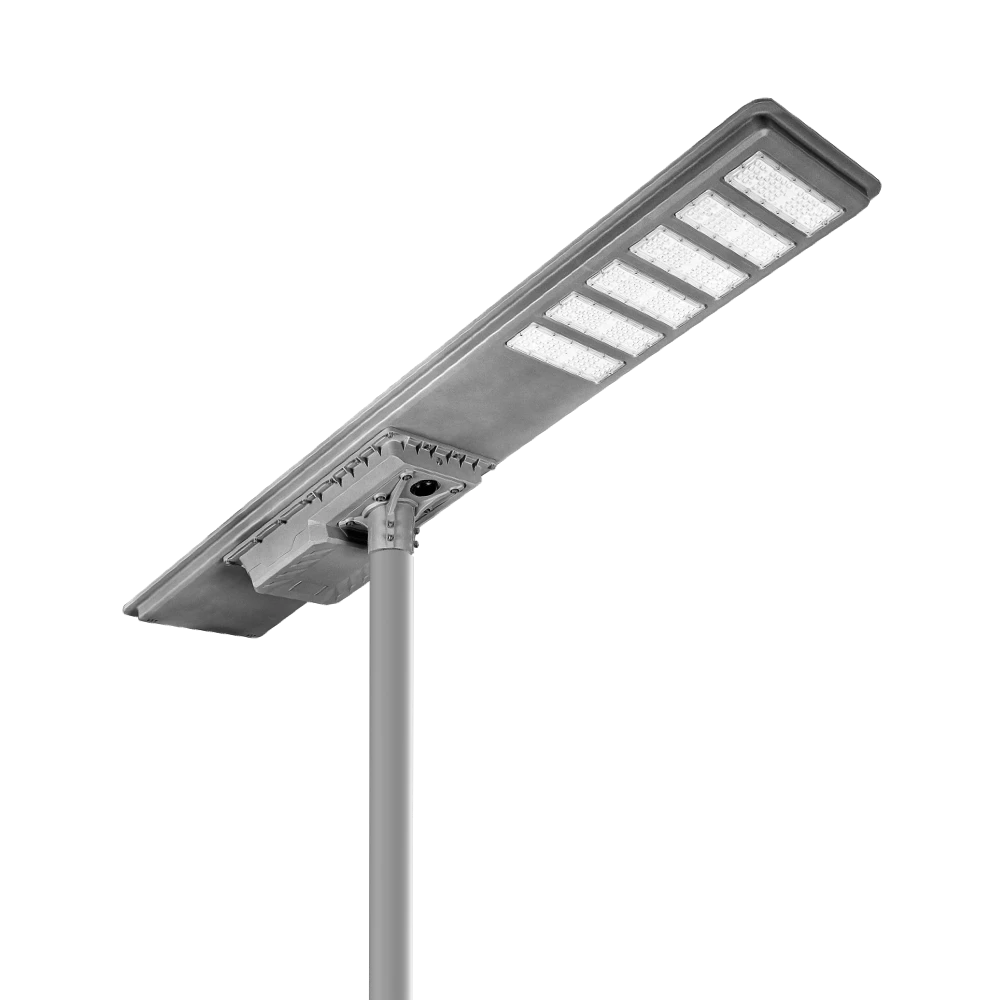
Queneng's Luqiu Innovative Solar Street Light offers energy-saving, durable outdoor lighting. This solar power street light provides a reliable and eco-friendly solution for illuminating your streets and pathways.
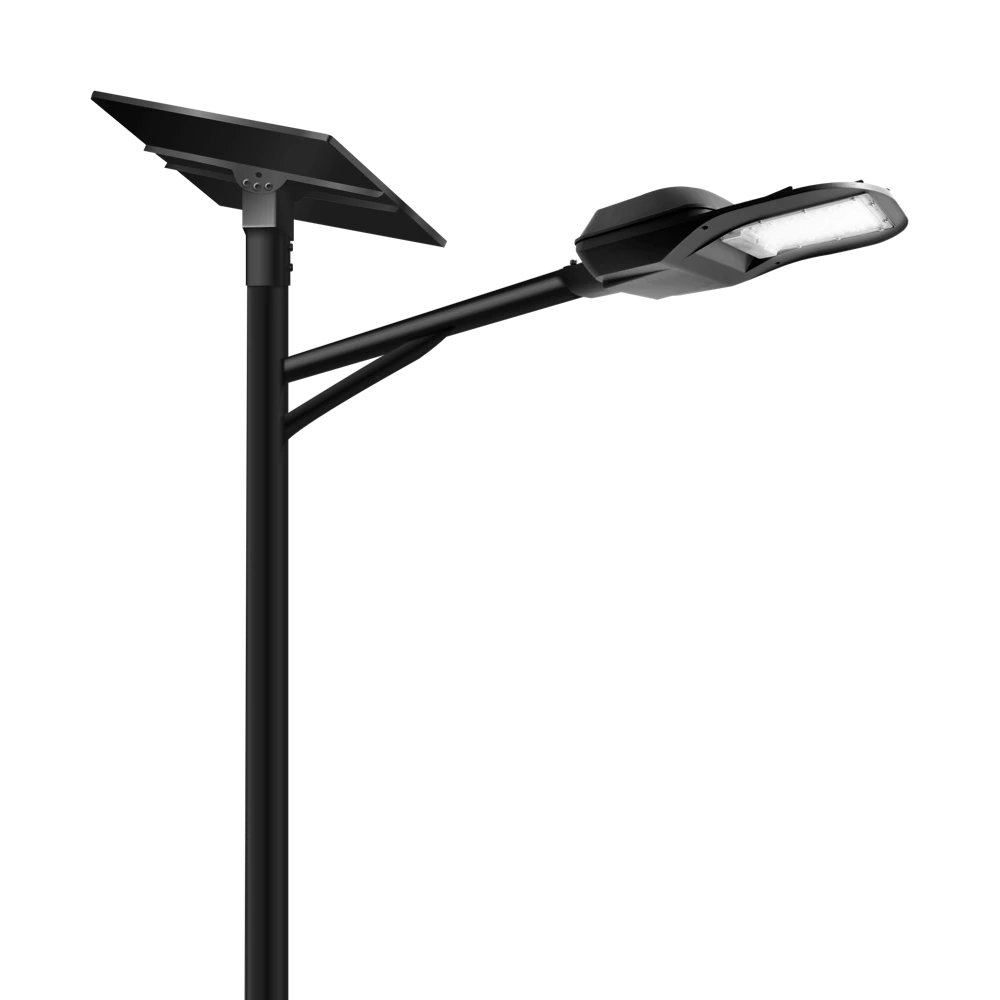
If you would like more information about Queneng solar lighting solutions, please send us a message by filling out the form below. Our professional team will get back to you within 24 hours!
Rest assured that your privacy is important to us, and all information provided will be handled with the utmost confidentiality.
Schedule a Meeting

Book a date and time that is convenient for you and conduct the session in advance.
Have more questions about our products or services?





















